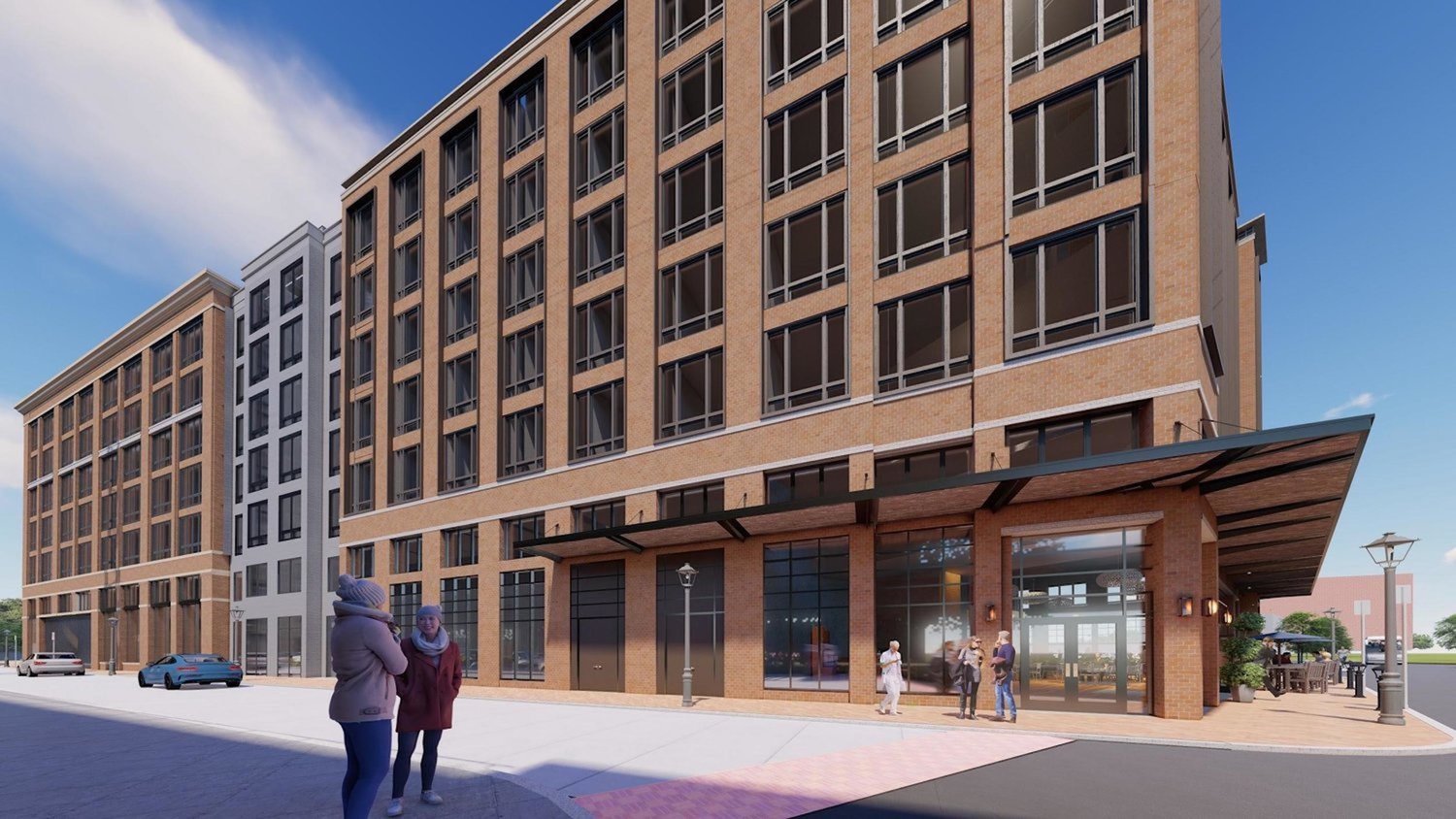Variance hearing for Lynbrook apartment complex is set for March 10
A public hearing on a variance that a developer is seeking to build a $95 million, 201-unit apartment complex at the former Mangrove Feather factory has been delayed, and the project cannot move forward until they are approved.
The Garden City-based Breslin Realty was to appear before the State Department of State’s variance board in Hauppauge Feb. 10, but the session was postponed by a month.
Lynbrook Building Department Superintendent Brian Stanton explained that under state code, Fire Department access roads must be 26 feet wide, but Breslin is seeking board approval for an access point at Saperstein Plaza that is 25 feet, 1 inch. If approved, Stanton said, there would be several more steps before the building could be razed and apartments built.
“A project of this magnitude gets reviewed by outside engineering firms to put new eyes on it to make sure it’s totally co-complaint and structurally sound before I even start my review,” Stanton said.
Last month, Lynbrook Mayor Alan Beach said he hoped the structure would be demolished by the end of this month, but that is no longer possible. He did not say why the hearing was delayed. If approved, construction is expected to take two to two and a half years to complete.
Breslin received approval from village officials last June to raze the old factory, which sits across from the Lynbrook Long Island Rail Road station and has been vacant for more than a decade, and build a roughly 278,000-square-foot, transit-oriented development with 55 studios, 111 one-bedroom and 35 two-bedroom apartments.
“We’re all looking forward to bringing life back to our downtown and to our local businesses,” Beach said last month, “and getting the pandemic in the rearview mirror.”
The Town of Hempstead Industrial Development Agency approved a 30-year payment in lieu of taxes, or PILOT, agreement for the project in November. Under the PILOT, the annual tax rate would be frozen at about $185,000 for three years, then jump to $200,000 in year four and to more than $1 million by the 15th year. After 30 years, taxes would rise to $1.8 million.
The building’s first two floors would house a parking garage, with 205 parking spaces for residents. Amenities would include a retail café, clubroom, concierge, rooftop terrace with grill, lounge, party room and dog run.
Experts have estimated that the complex would add six to 19 children to the district — a figure that would be kept relatively low because most of the apartments would be studios and one-bedrooms, without sufficient room for families.
Several village administrations have pushed to see the site developed, but it took many years to persuade the owner, Barry Singer, to sell the property. David Orwasher, Breslin’s chief development officer, who said in November that he thought the site was an ideal spot for apartments because of its proximity to the LIRR station and downtown shops and restaurants. Breslin negotiated with Colliers International’s Jordan Baruch and Matthew Kucker, who brokered the deal.
“We’re very mindful of being good neighbors, good corporate citizens and contributing to the vitality of the area,” Breslin said. “The taxes will probably go up over time seven- to 10-fold. It will be a significant, significant revenue generator.”






